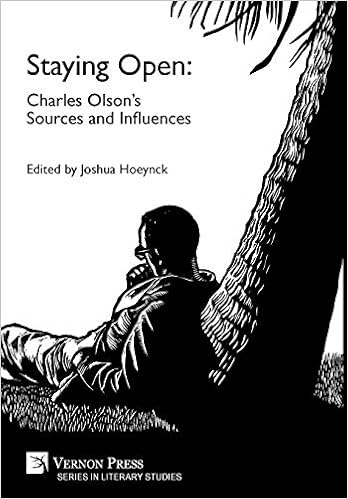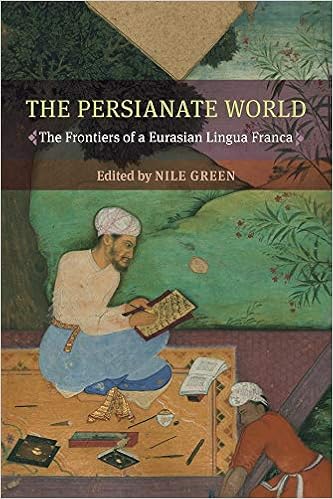"...the Imagination (or love, or sympathy, or any other sentiment) induces knowledge, and knowledge of an 'object' which is proper to it..."
Henry Corbin (1903-1978) was a scholar, philosopher and theologian. He was a champion of the transformative power of the Imagination and of the transcendent reality of the individual in a world threatened by totalitarianisms of all kinds. One of the 20th century’s most prolific scholars of Islamic mysticism, Corbin was Professor of Islam & Islamic Philosophy at the Sorbonne in Paris and at the University of Teheran. He was a major figure at the Eranos Conferences in Switzerland. He introduced the concept of the mundus imaginalis into contemporary thought. His work has provided a foundation for archetypal psychology as developed by James Hillman and influenced countless poets and artists worldwide. But Corbin’s central project was to provide a framework for understanding the unity of the religions of the Book: Judaism, Christianity and Islam. His great work Alone with the Alone: Creative Imagination in the Sufism of Ibn ‘Arabi is a classic initiatory text of visionary spirituality that transcends the tragic divisions among the three great monotheisms. Corbin’s life was devoted to the struggle to free the religious imagination from fundamentalisms of every kind. His work marks a watershed in our understanding of the religions of the West and makes a profound contribution to the study of the place of the imagination in human life.Search The Legacy of Henry Corbin: Over 800 Posts
Saturday, December 22, 2018
Trifecta! Corbin / Twombly / Olson
Staying Open: Charles Olson’s Sources and Influences
Joshua S. Hoeynck (Ed.)
Acknowledgements
Introduction
Chapter 1 Projective Verse and pedagogy
Michael Kindellan
Chapter 2 Olson’s poetics and pedagogy: influences at Black Mountain College
Jeff Gardiner
Chapter 3 Olson’s Dérive, near-far Boulez
Michael Jonik
Chapter 4 “By ear, he sd.”: open listening with Charles Olson and John Cage
Alexander Ruggeri
Chapter 5 “Mu-sick, mu-sick, mu-sick”: Olson’s stammer and the poetics of noise
Seth Johnson Forrest
Chapter 6 Shadow on the rock: morphology and voice in Olson’s later Maximus poems
Jeff Davis
Chapter 7 Charles Olson and his “post-modern” exploration
Joshua Gardner
Chapter 8 “what insides are”: history—gravitational and unrelieved
Kirsty Singer
Chapter 9 Revising the stance of “Projective Verse”: Charles Olson’s ecological vision of Alfred North Whitehead’s cosmology
Joshua Hoeynck
Chapter 10 Olson, Peirce, Whitehead, and American process poetics
Daniel D. Fineman
Chapter 11 Maximus and Aboriginal Australia: antipodean influences on the archaic proprioceptive epic
Nathanael Pree
Chapter 12 An Archaeologist of Morning in the Mayab, 1951
Dylan Clark
Coda
Index
Tuesday, December 18, 2018
The Persianate World
Green, Nile. [Ed.]
The Persianate World: The Frontiers of a Eurasian Lingua Franca.
University of Californai Press,
2019.
"Persian is one of the great lingua francas of world history. Yet despite its recognition as a shared language across the Islamic world and beyond, its scope, impact and mechanisms remain underexplored. A world historical inquiry into pre-modern cosmopolitanism, The Persianate World traces the reach and limits of Persian as a Eurasian language in a comprehensive survey of its geographical, literary, and social frontiers. From Siberia to Southeast Asia, and between London and Beijing, this book shows how Persian gained, maintained, and finally surrendered its status to imperial and vernacular competitors. Capturing the Persianate as process, fourteen essays trace Persian's interactions with Bengali, Chinese, Turkic, and Punjabi, to identify the forces that extended 'Persographia,' the domain of written Persian. Spanning the ages' expansion and contraction, The Persianate World offers a critical survey of both the supports and constraints of one of history's key languages of global exchange"
The Persianate world. Rethinking a shared sphere.
Abbas Amanat; Assef Ashraf [Eds.]
Leiden : Brill 2018.
Iran studies, 18.
"The Persianate World: Rethinking a Shared Sphere is among the first books to explore the pre-modern and early modern historical ties among such diverse regions as Anatolia, the Iranian plateau, Central Asia, Western Xinjiang, the Indian subcontinent, and southeast Asia, as well as the circumstances that reoriented these regions and helped break up the Persianate ecumene in modern times. Essays explore the modalities of Persianate culture, the defining features of the Persianate cosmopolis, religious practice and networks, the diffusion of literature across space, subaltern social groups, and the impact of technological advances on language. Taken together, the essays reflect the current scholarship in Persianate studies, and offer pathways for future research."
Sunday, December 16, 2018
Tom Cheetham - Upcoming Events
February 15, 2019
The Flame of Things
Lessons in Pyrotechnics
Lexington Community Education
Lexington, Massachusetts
REGISTER
April 26 & 27, 2019
The Spirit of Fire and the Missing Yellow:
Imagination & the Lumen Natura
C.G. Jung Society of Montreal,
Montreal, Quebec
September 13-15, 2019
The Rowe Center
Rowe, Massachusetts
Attending to Earth
An Approach to a Psychoecology
Monday, December 10, 2018
New from Mohammad Rustom
THIS IS A REALLY INTERESTING INTERVIEW:
Neo-Orientalism and the Study of Islamic Philosophy:
An Interview with Professor Mohammed Rustom
Mohammed Rustom and Soroosh Shahriari
Journal of Islamic and Muslim Studies,
Vol. 3, No. 1 (May 2018), pp. 112-119
After attending Professor Rustom's advanced seminar on Ibn Sina at Carleton University in winter 2017, doctoral candidate Soroosh Shahriari of McGill University, Canada, "brought up the possibility of. .. [posing] some 'hard' questions concerning the contemporary study of Islamic philosophy." Rustom's in-depth knowledge of the method and spirit of traditional Islamic education and Islamic metaphysics helps us navigate the complexities inherent in the study of Islamic philosophy in the modern academy.
ʿAyn al-Quḍāt between Divine Jealousy and Political Intrigue
Journal of Sufi Studies 7 (2018) 47–73
Mohammed Rustom
Carleton University (Canada)
mrustom@connect.carleton.ca
Abstract Modern scholars have been interested in the great Persian Sufi martyr ʿAyn al-Quḍāt Hamadānī (d. 525/1131) for over six decades. Despite this fact, many aspects of his life and thought still remain terra incognita. Our knowledge of the circumstances sur-rounding his death is a case-in-point. Although we have a fairly good understanding of the factors which led to ʿAyn al-Quḍāt’s demise, there are other “causes” which simul-taneously complement and problematize this understanding. Chief amongst these are the underlying reasons for ʿAyn al-Quḍāt’s critique of the Seljuk government, as well as something which ʿAyn al-Quḍāt saw as a more subtle cause for his death several years before his anticipated state execution.
Sunday, December 9, 2018
Corbin Course Deadline
Register by December 20 to guarantee your place.
tcheetham@gmail.com
Henry Corbin - Turkey, 1942
All the World an Icon
An Introduction to the Thought of Henry Corbin
An Online Course with Tom Cheetham
We meet once a week for 8 weeks in either of two sections:
Section 1: Tuesdays 2:30pm EST [7:30pm GMT] !
Begins January 8, 2019
- for those in Europe -
Section 2: Wednesdays 7pm EST [12am GMT] !
Begins January 9, 2019
- for those in W. Hemisphere -
Register or inquire about details by contacting me directly:
tcheetham@gmail.com
Tuition: $50 per 90-minute live class session. $400 for the course.
*Sliding scale: No one will be turned away because of inability to pay.*
Tuesday, December 4, 2018
Tafsir as Mystical Experience: Intimacy and Ecstasy in Quran Commentary
"The Orientalist" - A Documentary About Henry Corbin!!!!!
From the Tehran Times
Orientalist Henry Corbin subject of “The Eastern” director’s new film
December 2, 2018
TEHRAN – Masud Taheri, the Iranian director of the documentary film “The Eastern” about Japanese expert on Islam Toshihiko Izutsu, plans to make his new film on French philosopher, theologian and Orientalist Henry Corbin (1903-1978).
The film entitled “The Orientalist” will be co-produced by the Documentary and Experimental Film Center and Chehrdad Film, Taheri said in a press release on Saturday.
“The documentary is typically a sequel to ‘The Eastern’ and will focus on the thoughts of Henry Corbin who, like Izutsu, was tracking illumination in the East,” he added.
“Iran was the common ground between the two philosophers who came together in the country before the victory of the Islamic Revolution for most of the months of a year to discuss various issues,” he stated.
Shooting of the documentary will begin in the near future and is expected to be completed in late spring.
Joan Copjec on Corbin & Schelling and more!
Cloud, Precinct of the Theological-Historical
Joan Copjec
Psychoanalysis and History, Volume 20 Issue 3, Page 277-291,
ISSN 1460-8235
Available Online Nov 2018
Keywords: imaginal world, Cloud, tautegory, expression, Corbin, Lacan, Laplanche, Freud, Schelling, abyss, Abgrund, après-coup, Nachträglichkeit, tautegory
(https://doi.org/10.3366/pah.2018.0269)
Abstract
Regarded by many as the pre-eminent Islamicist of the twentieth century, Henry Corbin is also the subject of much criticism, aimed primarily at his supposed overemphasis on the mythological aspects of Islamic philosophy and his idiosyncratic privileging of the concept of the imaginal world. Taking seriously an unusual claim made by Steven Wasserstrom in Religion after Religion that the redeployment of Schelling's concept of tautegory by Corbin reveals all that is wrong with his work, this essay seeks to defend both the concept and Corbin's use of it. Developed by Schelling in his late work on mythology, the concept of tautegory turns out to be, for historical and theoretical reasons, a revelatory switch point. Not only does it make clear why the imaginal ‘locus’ is key to understanding the unity of God – the oneness of his apophatic and revealed dimensions – it also gives us profound insights into the links connecting Islamic philosophy, German Idealism, and psychoanalysis, which all take their bearings from the esoteric or mystical idea of an unconscious abyss.
Sunday, December 2, 2018
THE FIVEASH LEGACY LECTURE with Tom Cheetham
Lexington Community EducationLexington, Massachusetts
February 15, 2019, 7pm
The Flame of Things: Lessons in Pyrotechnics
[I]maginal love … does not reach only towards unifying as we have been so tediously taught. When we love, we want to explore, to discriminate more and more widely, to extend the intricacy that intensifies intimacy.—James Hillman
Many of us have lost contact with the primal immersion in reality where all things are marvellous and strange, both familiar and unexpected. That world is saturated with an incandescent fire, as in the first morning of creation. There are many ways to recover the beginner’s mind that reveals the flame of things. If we imagine the fiery heart to be the organ of both Imagination and sensation, as certain traditions have held, we can know the nature of our task. Fire is magical and dangerous. It is spirit and life, conflagration and despair. It is hearth and hellfire both. Our challenge is to master the pyrotechnics of art and of alchemy, of knowledge and of love. Then we might enact new forms of life that reveal the wonder and mystery in all things. In this lecture author Tom Cheetham will try to help us take a few small steps towards that end.
 Tom Cheetham is the author of five books on the imagination in religion, psychology, the arts and sciences, and one book of poems. He is a Fellow of the Temenos Academy in London, and was Adjunct Professor of Human Ecology at the College of the Atlantic, and Associate Professor of Biology and Environmental Studies at Wilson College. He teaches and lectures in the US and Europe. He and his wife live on a homestead in rural Maine. They have two grown children.
Tom Cheetham is the author of five books on the imagination in religion, psychology, the arts and sciences, and one book of poems. He is a Fellow of the Temenos Academy in London, and was Adjunct Professor of Human Ecology at the College of the Atlantic, and Associate Professor of Biology and Environmental Studies at Wilson College. He teaches and lectures in the US and Europe. He and his wife live on a homestead in rural Maine. They have two grown children.
Subscribe to:
Posts (Atom)













